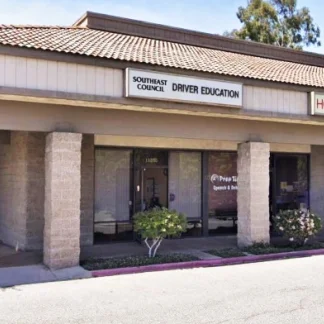Child Guidance Center
Child Guidance Center, located in Buena Park, California, is a mental and behavi...
Southern California Alcohol and Drug Programs, located in Cerritos, California, offers alcohol and drug rehab programs for men and women seeking recovery. Staff take a person-centered approach to client transformation. Legal support services are also available. All programs are offered on an outpatient basis.
The outpatient program includes DUI education and coursework, drug court support, and traditional treatment services. Individual therapy, group therapy, family therapy, and addiction education services are provided.
Southern California Alcohol and Drug Programs accepts most insurance plans, including Amerigroup, Anthem, Blue Cross Blue Shield, Magellan, Kaiser, Aetna, TRICARE, Beacon, HCSC, Wellmark, ComPsych, and Cigna. Out of network benefits may vary, so it’s important to verify coverage with your insurance provider prior to enrolling in treatment.
Contact us for more information: (562) 923-4545

Connect with Southern California Alcohol and Drug Programs by calling their admissions team directly.
(562) 923-4545 Website Get DirectionsState Licenses are permits issued by government agencies that allow rehab organizations to conduct business legally within a certain geographical area. Typically, the kind of program a rehab facility offers, along with its physical location, determines which licenses are required to operate legally.
State License: California
Group therapy is any therapeutic work that happens in a group (not one-on-one). There are a number of different group therapy modalities, including support groups, experiential therapy, psycho-education, and more. Group therapy involves treatment as well as processing interaction between group members.
In individual therapy, a patient meets one-on-one with a trained psychologist or counselor. Therapy is a pivotal part of effective substance abuse treatment, as it often covers root causes of addiction, including challenges faced by the patient in their social, family, and work/school life.
Life skills trainings involve all the skills a person must have in order to function successfully in the world. These include time management, career guidance, money management, and effective communication. Truly successful addiction recovery is based on the ability to not only live substance-free, but to thrive. Life skills teaches the practical necessities of functioning in society, which sets clients up for success in life, and therefore sobriety.
In individual therapy, a patient meets one-on-one with a trained psychologist or counselor. Therapy is a pivotal part of effective substance abuse treatment, as it often covers root causes of addiction, including challenges faced by the patient in their social, family, and work/school life.
Life skills trainings involve all the skills a person must have in order to function successfully in the world. These include time management, career guidance, money management, and effective communication. Truly successful addiction recovery is based on the ability to not only live substance-free, but to thrive. Life skills teaches the practical necessities of functioning in society, which sets clients up for success in life, and therefore sobriety.
Life skills trainings involve all the skills a person must have in order to function successfully in the world. These include time management, career guidance, money management, and effective communication. Truly successful addiction recovery is based on the ability to not only live substance-free, but to thrive. Life skills teaches the practical necessities of functioning in society, which sets clients up for success in life, and therefore sobriety.
Child Guidance Center, located in Buena Park, California, is a mental and behavi...
Los Alamitos Medical Center is a private rehab located in Los Alamitos, Californ...
VA Long Beach Healthcare System - Santa Fe Springs Community Based Outpatient Cl...
New Directions offers outpatient alcohol and drug rehab treatment for adults and...